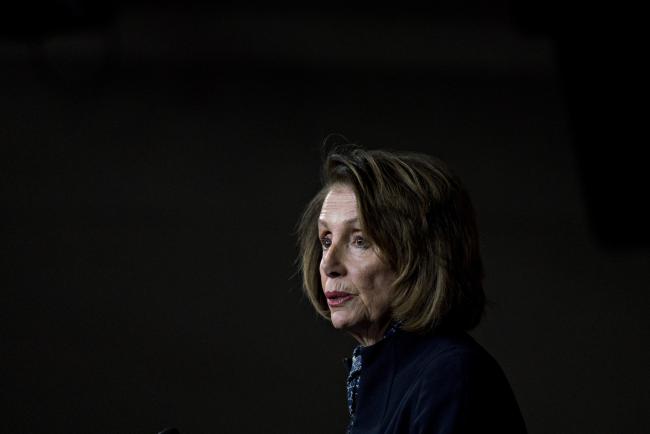(Bloomberg) -- House Speaker Nancy Pelosi said she doesn’t plan to use President Donald Trump’s new North American trade accord as leverage to advance other Democratic priorities like a minimum wage hike, easing concern that the deal could get stalled by unrelated negotiations.
“It will stand on its own,” Pelosi said of the trade deal with Canada and Mexico, adding that she is focused on strengthening enforcement of the pact’s provisions rather than bringing other policy issues to the table. “I’m hopeful that we could get a trade agreement, but it has to be one that is real and that works.”
The trade accord faces challenges in all three countries, including a tight timetable and uneven support among the American electorate. In the U.S., the deal has to get through the Democratic-led House and the Republican-led Senate, ideally before Congress’s August recess to avoid end-of-the-year spending talks and next year’s presidential election.
The strategy Pelosi outlined Thursday on the United States-Mexico-Canada Agreement contrasts with what she did a decade ago during her first tenure as speaker under then-President George W. Bush. When the White House started efforts to fast-track a free trade deal with Colombia in 2008, she stopped it by changing House rules and using her support as a bargaining chip for unrelated legislation.
She told reporters at the time that she wanted concessions on other items Bush might otherwise oppose, including infrastructure spending, unemployment insurance, more funding for states and aid for workers who lose their jobs due to increased trade. Her rejection of Bush’s request for a vote within 90 days on the Colombia deal also delayed deals with South Korea and Panama.
The broad scope of Pelosi’s negotiations with the Bush administration failed to advance her policy wish list. Variations of all three trade deals were later ratified in 2012 during the administration of President Barack Obama.
In her remarks Thursday, Pelosi noted that she supported the 1994 North American Free Trade Agreement and said she is generally supportive of seeing a new pact with Canada and Mexico. She said Democrats are seeking “stronger enforcement language” governing provisions related to labor, the environment and pharmaceuticals.
The “overarching issue is are we going to have real enforcement,” she said. She didn’t specify whether stronger enforcement language could be added in a side agreement or legislation to implement the deal in the U.S. -- or if she would seek to reopen the negotiation.
